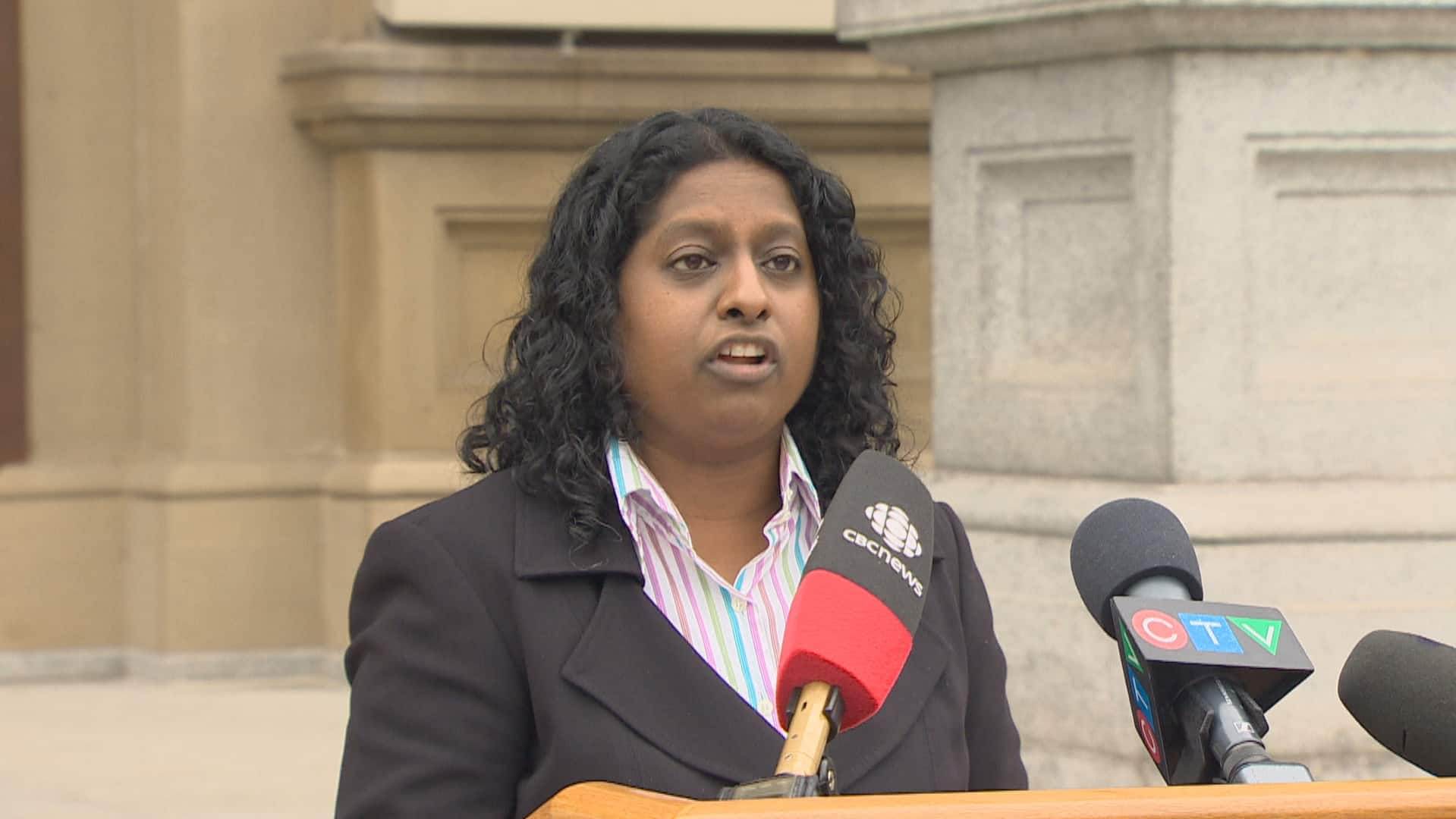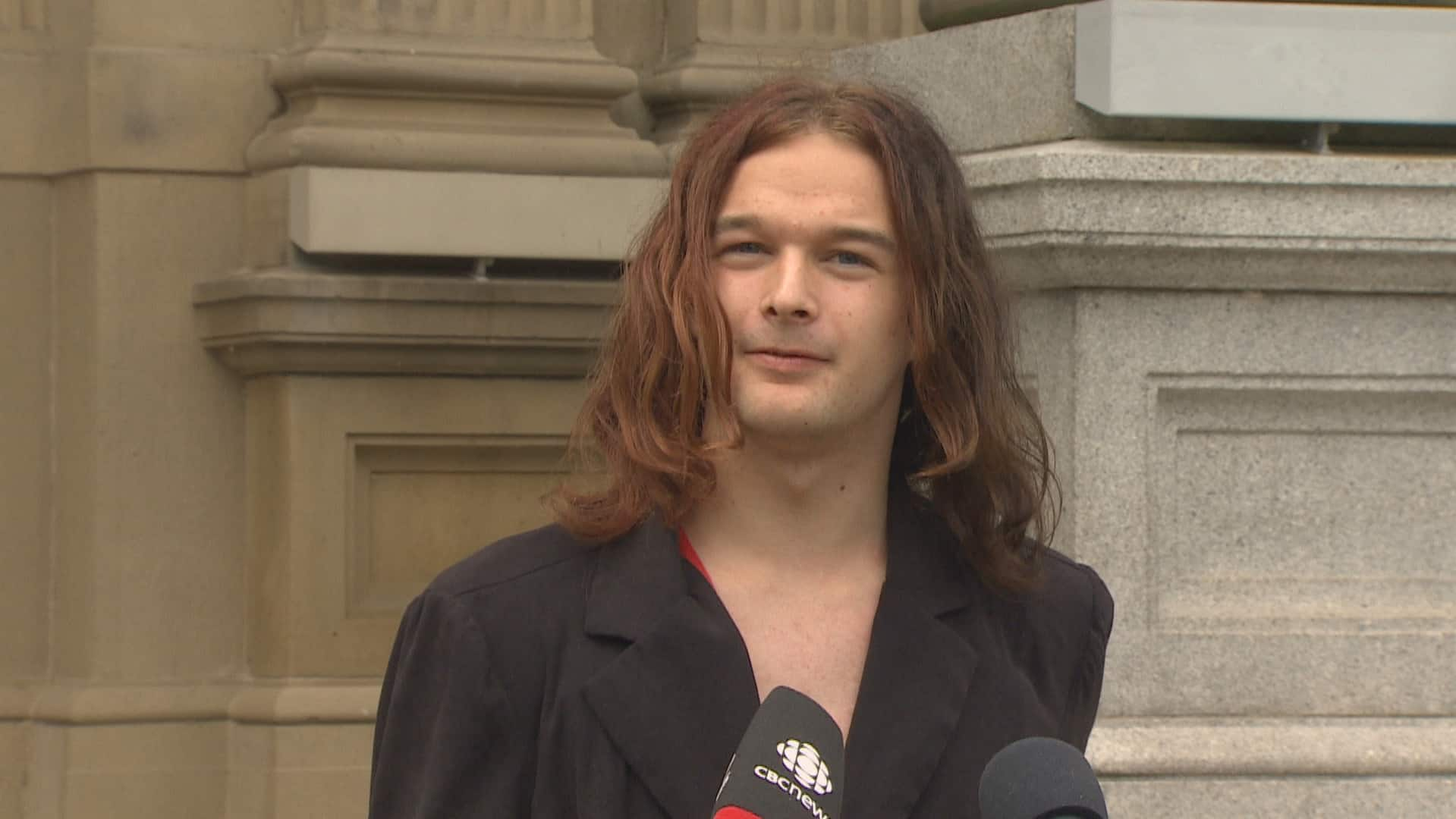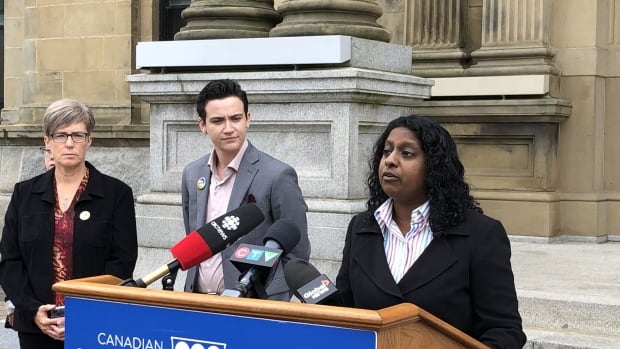
A national civil liberties group is giving the New Brunswick government an ultimatum: immediately reverse changes to school gender-identity policy or we’ll sue.
The changes made to Policy 713 are “unlawful and unconstitutional and should not stand,” Harini Sivalingam, director of equality for the Canadian Civil Liberties Association said Thursday outside the legislature, where the group held a news conference.
“I am here … to deliver a final message to the government of New Brunswick,” she said. “Canadians from all across the country are watching.”
Premier Blaine Higgs said later that the government stands by its revisions.
“It is unfortunate that it may take a legal interpretation to determine the role parents play in their children’s lives and education,” he said in an emailed statement.
Education Minister Bill Hogan has announced changes to the school policy that sets out minimum requirements for a safe learning environment for LGBTQ students. He said teachers and staff will now be banned from using a child under 16’s chosen name and pronoun, even informally and verbally, unless parents consent.
Under the revised policy, if a child says no to including parents, they’re to be directed to a school psychologist or social worker to come up with a plan to eventually include the parents. While this process goes on, teachers and staff are required to use the child’s birth name and pronoun regardless of what the student requests, he said.
The Canadian Civil Liberties Association delivers ‘final message,’ calling on Premiere Blaine Higgs to reverse changes to the gender-identity policy for schools.
The changes are expected to come into effect on July 1, before any legal action begins.
Higgs and Hogan have previously said they changed the policy to protect “the rights of parents to know” what’s going on with their children. They said teachers were keeping secrets from parents by not notifying them when a child requests to use a different pronoun informally in class.
Since it was introduced in 2020, Police 713 has always required parental consent for official name changes for children under 16 in school records.
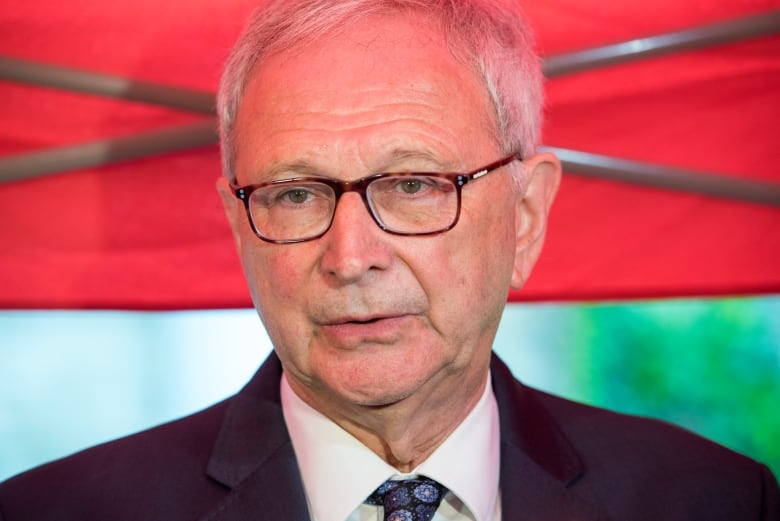
Education, legal, child welfare and mental heath experts have all spoken out against the changes. The child and youth advocate called the changes “shoddy” and “inadvertently discriminatory.”
The union representing school psychologists said rejecting a child’s request for a specific pronoun will “increase the risk of self-harm and suicide,” and it’s grieving the changes because it “coerces” members to contravene the children’s human rights.
Sivalingam said lawyers for the civil liberties group are looking at the new policy and compiling a legal strategy for a lawsuit. She did not share a specific timeline for a legal challenge.
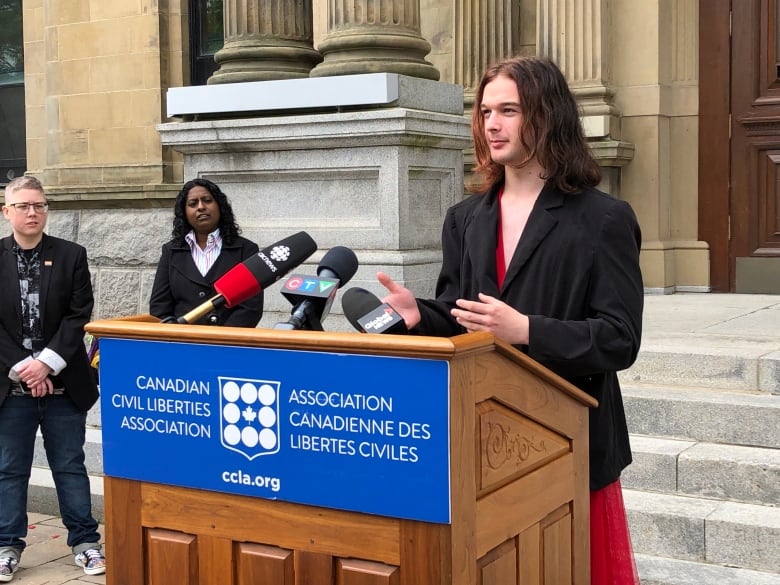
Sivalingam said the review to the policy began because of an anti-LGBTQ “vocal minority,” and the premier did not protect LGBTQ children from this group.
“[Premier Blaine Higgs] capitulated to extremist views and he forgot that New Brunswick is not Florida,” she said, referring to the anti-transgender legislation that’s been passed in the state.
Trans students ‘will start disappearing’
Evie Robinson-Dyck, a Grade 12 Saint John High School student, spoke at the news conference about what could happen if the policy changes are applied next school year. She said kids will have to stay in the closet because getting their parents’ consent is not an option.
“These amazing friend and community members that I have known …Will start disappearing and disappearing, they’ll have to change their names and their pronouns, they’ll stop being themselves,” she said.
Evie Robinson-Dyck speaks at a news conference about their fears for friends and community members.
She said she’s lucky to have supportive parents, but some of her friends could only use their chosen pronouns in school because their parents would not accept them.
“I know so many parents who would kick out their children,” she said. “Why do these parents have to know? The ones who will treat their child differently. Who will be physically mentally or verbally abusive based on names, pronouns, their sexualities, and things that are truly just who we are.”
